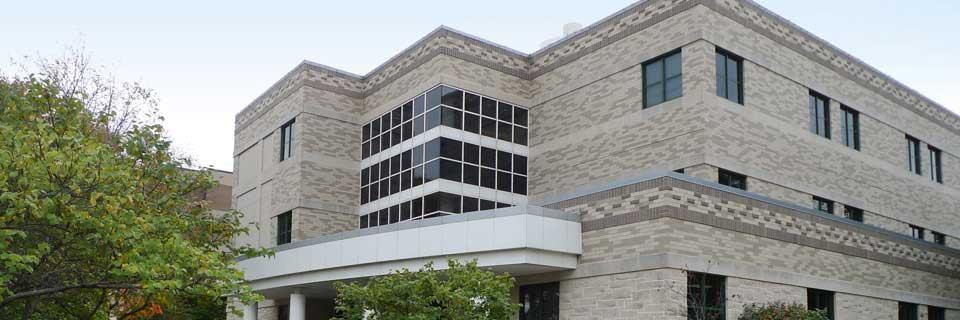Disabilities Are Not Drawbacks for Chemistry Student

Ashley Neybert, a Rockhurst senior about to enter her last semester as an undergraduate chemistry student, said it can be easy to let obstacles get in the way of goals.
Every day, Neybert said she wakes up with multiple different disabilities, ranging from visual impairment to migraines exacerbated by exposure to light to autism, attention deficit disorder and obsessive compulsive disorder. But those disabilities, she said, have not made her shirk from her dreams. If anything, Neybert said they have strengthened her resolve.
Next week, Neybert will travel to the American Chemical Society’s semiannual national meeting in Boston to speak and receive the Overcoming Challenges Award, given by the Women Chemists Committee of the ACS, in recognition of that resolve. The award is given to undergraduate female chemistry students who have overcome obstacles in their pursuit of success in the field of chemistry. It’s an opportunity that Neybert said she almost missed completely.
“I get a lot of emails from the ACS that often have a lot of items and information in them,” she said. “But I happened to see this one and somewhere in the back of my head I thought ‘you should apply for this.’”
Neybert has faced plenty of obstacles because of her disabilities. She said she relies on others to help her with tasks that many in the lab would have no trouble with: because of her visual impairment, for instance, performing a pH test means holding another piece of paper behind the test strip to help discern the color of the result.
Neybert said she submitted a personal essay about the obstacles she’s faced and a form for the award. When she read the email telling her she had won, she was ecstatic.
“I was really shocked, because I thought it would go to someone with a beautiful story,” she said. “My automatic thought was I had gone through a lot, but to me, it’s kind of well, this is life.”
It’s a life that has given Neybert not only unique challenges, but also a unique perspective to share with other students and science. Motivated by a desire to use science to solve real-world problems, Neybert settled into her chemistry studies before discovering chemical education, a newer discipline that she said combines chemistry with psychology and education in the study of how chemistry is taught and learned at all levels. It’s a field that Neybert said she began to explore in her undergraduate dissertation at her former university.
It’s also close to her heart, she said, because she feels that her own experience can serve as an example for others. As a teaching assistant in Rockhurst’s introductory chemistry classes, Neybert said she has already had the opportunity to share her story, including one student who opened up about her own disabilities.
“This student shared with me that she had always had interest in science but had disabilities. She had never seen a disabled scientist before, so she assumed they didn’t exist,” she said. “I think for me, that’s kind of the magic of teaching, especially introductory classes — that experience in your class can have an impact on a students’ life.”







